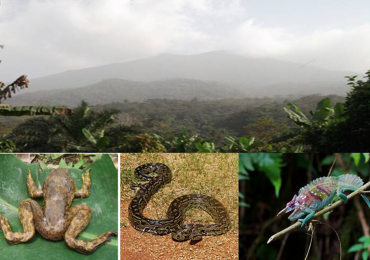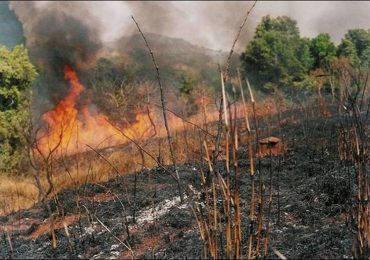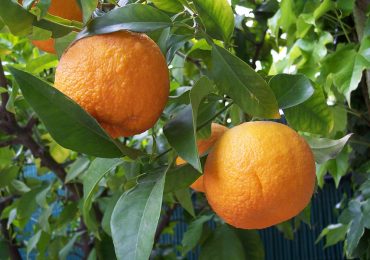
China has come under biting criticism as a nation playing a key role in fuelling the flow of illicit global timber trade. The Asian country imports huge volumes from Cameroon, one of many countries which supplies raw timber from its tropical rainforests, yet Cameroon seems to gain little from this transaction. This has to change.
By Anu Nkeze Paul & Azore Opio
On June 23 to 25, at the Mont Febe Hotel in Yaounde, and then in Kribi, Cameroon and China held talks to review the terms of trade in timber and other forest products between the two sovereign nations.
The workshop was jointly organized by Centre for Environmental Development (CED) and International Institute for Environmental Development.
China is the leading importer of Cameroon’s illegal timber; Cameroon’s timber exports to China increased from 29% to 65% between 2003 and 2009.
The workshop was, therefore, aimed to reverse the trend of exportation of illegal timber to China from Cameroon and to ensure that transactions between both states respect the Voluntary Partnership Accord (VPA) of the Forest Law Enforcement Governance Trade (FLEGT).
Cameroon has signed and ratified the VPA with the EU, committing to fight illegal logging and illicit commerce of timber. But, according, to a report from The Center for International Forestry Research, China still imports unregulated timber from Cameroon.
According to an official of Greenpeace International, Brendan Schwartz, “China is a quick and easy destination for illegal timber from Cameroon. There is a high amount of timber from these illegal sources at Douala seaport destined for China.” Schwartz was quoted in the online media, chinadialogue.
Surveys indicate that Chinese involvement in the Cameroon timber sector comprises: 19 permits (6 concessions and 13 sales of standing volume) which in 2014 appeared to be in Chinese ownership – covering about 650,000 hectares, or a little over 10% of the forestry permit area in Cameroon and mainly concentrated in the East Region.
Between 2009 and 2014, some 2,586,282 cubic metres of forestry product were exported to China, including logs, sawn wood and other products – with a yearly average of about 85% of these exports being raw logs. Between 2009 and 2012, 1,157,439 cubic metres of logs were exported to China out of a total of 2,098,000 cubic metres or about 55% of the volume of logs exported from Cameroon.
The number of Chinese timber trading enterprises present all year around in Cameroon range between 20 and 30. The main species exported as logs are: Ayous/Obeche, Awoura, Diabema, Ekop Ekusek, Azobe, Kossipo, Okan/Adoum, Tali, Bilinga and Naga.
Ayous/Obeche and Sapelli are the main species in sawn wood exports, whilst Ayous is the main species exported in plywood and veneer.
China is also a key destination for some special forest products from Cameroon. The exported volume of Ebony between 2009 and 2014 increased from 30,000 kg to 350,000 kg, whilst that of Yohimbe decreased over the same period.
In 2014, raffia nuts appeared in the special forest product exports to China figures for the first time. Economic benefits of Chinese linked investment within the forestry sector to date seem limited. Despite increased involvement in the sector since 2009, there have been few opportunities for local value-addition from timber processing, as the bulk of the exports are logs, and little effective technology transfer.
Some jobs are created but the level of registration of workers in social insurance is reportedly weak, and some workers complain that salaries are particularly low. Social obligations are only poorly delivered whilst implemented corporate social responsibility programmes are rare. Implementation of even simple environmental management plans remains a challenge both for Chinese companies and the Cameroonian administration tasked with monitoring them. In addition, there is the perpetuation of some illegal operations in the informal forest sector, like illegal exploitation of Bubinga species by rural chainsaw loggers and millers and its sale to Chinese traders.
The timber trade between China and Cameroon has nevertheless brought some economic benefits to rural communities but it still suffers severe sustainability consequences.
The workshop ended with strong commitments and recommendations for both parties to respect all exploitation and export procedures and laws in force. Over 150 participants from Cameroon, Congo, Mozambique, London and China took part in the deliberations that arrived at the following; to generate grounded evidence of Chinese companies’ social and environmental impacts in Africa by encouraging Chinese researchers to conduct fieldwork in collaboration with local and international experts; conduct research in China to understand the complex value chains of African timber products in order to identify “pressure points” for policy and practice interventions; identify various types of incentives that may encourage better practices of companies and reward those that demonstrate sustainability and legality; conduct legality assessments of Chinese companies in their operations in Africa; work directly with Chinese companies to implement the guidelines and improve their sustainability practices through trainings, technical support and incentives and raise consumer awareness of sustainability issues associated with timber products.
Elsewhere on the continent, China also has Mozambique’s illegal timber in its grips. Rated as the world’s fourth poorest country, Mozambique reportedly loses “tens of millions of dollars in lost taxes from the illegal logging trade with China.”
This is also compounded by extensive corruption.
The Environmental Investigation Agency (EIA) reported that in 2012, “Chinese companies imported between 189,615 and 215,654 cubic metres of timber that had been illegally exported from Mozambique – comprising a staggering 48% of China’s imports from the country.
In that year, Mozambique lost [approximately] more than US $29 million in avoided tax may have been lost to State revenues in 2012 from unlicensed exports to China worth more than US$130 million, states EIA.










